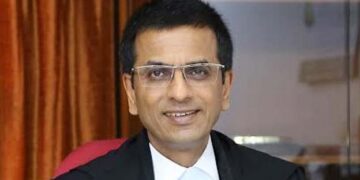Team Blitz India
NEW DELHI: Irked over minimal use of technology, the Supreme Court said no high court in the country shall deny access to videoconference or hearing through hybrid mode to lawyers and litigants after two weeks.
While making it clear that technology is not a matter of choice for judges now, a Bench comprising Chief Justice DY Chandrachud and Justices JB Pardiwala and Manoj Misra issued a slew of directions to ensure that such modes are not disbanded.
“After the lapse of two weeks from this order, no high court shall deny access to video conference facility or hearing through hybrid facility to any member of the bar and litigants,” the court said.
Model SOP
The Supreme Court directed that high courts would provide adequate Internet and free Wi-Fi to lawyers and litigants in their precincts. The links to the hearings would be provided in the daily cause lists. All the high courts would put in place a standard operating procedure (SOP) for video-conferencing and hybrid mode of hearings.
Delhi High Court judge, Justice Rajiv Shakdher, would prepare a model SOP in conjunction with the Supreme Court-appointed amici curiae, advocates Gaurav Agarwal and K Parameshwar.
“Supreme Court judges are being trained by Justice S Ravindra Bhat (also a sitting top court judge) in the hybrid mode… We thought it would be best to have a judge train other judges… no one better to know the practical challenges… If we are ready to learn, why should high court judges be so reticent?” Chief Justice Chandrachud asked.
The court was addressing a petition alleging that the Punjab and Haryana High Court had completely abandoned the use of videoconferencing for hearings.
















